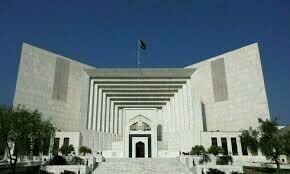BELGRADE: Former Bosnian Serb leader Radovan Karadzic, who was arrested on Monday saw himself as a defender of Serbs during the 1992-95 Bosnian war but ended up a fugitive wanted on genocide charges.
His 11 years at large had long been a stumbling block to Serbia’s European Union aspirations.
A professional psychiatrist and amateur poet of humble origins, he became president of the self-declared Bosnian Serb Republic before Nato forces began snatching suspects wanted by the international war crimes tribunal in The Hague in 1997.
Of the six republics that made up federal Yugoslavia, Bosnia was to pay the highest price in lives for independence and Serbs under him were held responsible for most of the 100,000 deaths.
The Hague tribunal indicted Karadzic in July 1995 for authorising the shooting of unarmed Sarajevo civilians and making hostages of UN peacekeepers.
He was indicted again four months later for orchestrating the slaughter of some 8,000 Muslim men after Serb forces seized the UN’s Srebrenica “safe area” in eastern Bosnia.
Karadzic protested his innocence and dismissed the tribunal as a “political court”. But in 1997, having lost power, he went underground and to this day loyalists see him as saviour of the Serbs, a hero hounded by foreign powers.
HUMBLE ORIGINS: Karadzic was born on June 19, 1945 in a mountain hamlet in Montenegro and raised in poverty by parents who despised the communist rule of Yugoslav President Josip Broz Tito. His father was a Serb nationalist fighter who was wounded by Tito’s partisans at the close of World War Two and imprisoned.
As a youth, Karadzic moved to the Bosnian capital, Sarajevo, and qualified as a psychiatrist specialising in neurosis and depression. At one point he treated the Sarajevo football club.
He published poetry and lived well in the city but was never fully accepted by its intellectual elite and prominent writers.
As multi-ethnic Yugoslavia began to crack in the late 1980s after Tito’s death, firebrand Sloboban Milosevic was whipping up nationalist fervour among Serbs and Karadzic was befriending the academics and writers who spoke of creating a Greater Serbia.Milosevic’s proteges chose him to lead a new Serb Democratic Party (SDS) in Bosnia. He was meant to be a stopgap but proved savvy and stayed in power. As Yugoslavia went on unravelling, Karadzic’s party helped arm Serbs across Bosnia and set up autonomous regions with help from the Yugoslav army and police.
On the eve of war in 1992, Karadzic warned against plans to declare Bosnia a sovereign state. It would lead the country into hell and perhaps “make the Muslim people disappear, because the Muslims cannot defend themselves if there is war”, he said.War came and Bosnian Serb forces backed by Yugoslavia seized 70 percent of Bosnia, expelling or killing the Muslims in many towns. Their methods provoked disgust and by 1994 Karadzic was starting to lose support where it counted.
SCAPEGOAT FATE: Milosevic, who died in The Hague in March 2006 while on trial for genocide, masterminded the war in Bosnia using Karadzic as a frontman. As world outrage grew over the daily slaughter, he turned peacemaker and made Karadzic his fall-guy.
Milosevic signed the US-brokered Dayton peace settlement in December 1995, sidelining Karadzic, who denounced it and defied demands to leave office until international pressure forced him to resign in July 1996.
Behind the scenes, he worked on to sabotage the accord.
But when Nato troops began capturing war crimes suspects in 1997, Karadzic could no longer assume he was safe in the open, even with heavily-armed guards. He remained popular, but his wartime influence was gone.
He is said to have spent the past years in eastern Bosnia where hardline Serbs held sway. Reports, never confirmed, spoke of Orthodox priest disguises and remote monastery hideouts.
In the summer of 2000, he was sighted in Belgrade. In May 2005, his wife, three brothers and two sisters gathered in Montenegro to bury his mother, but tabloid reports that he came in disguise were discounted as fanciful.
Several raids by Nato’s Bosnian mission, SFOR, and later the European Union peacekeeping force EUFOR targeted the Karadzic support network but usually found little. After the raids, Karadzic posters appeared captioned: “Always with you”.
On June 11, 2004, in a belated abandonment of its denials and under strong international pressure, the Bosnian Serb government acknowledged Serbs had indeed massacred thousands of Muslims in Srebrenica, on Karadzic’s orders.—Reuters













































Dear visitor, the comments section is undergoing an overhaul and will return soon.